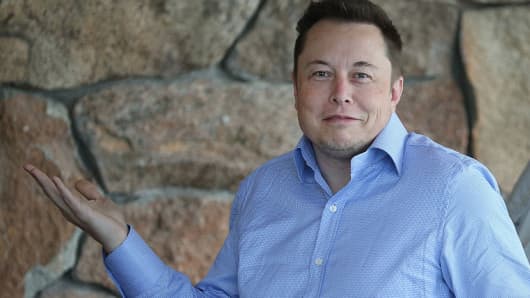It's one thing to justify why some adults might be able to afford a neural lace and others can't. Politically, that would just be another version of the never-ending debate about why some people are better off than others.
But the greatest effect on income inequality will happen when poor, working-class, and middle-class kids have to compete with their wealthy, digitally enhanced peers.
Growing up, I was one of the poorest kids in town. After my dad broke his back, my family spent time on food stamps and welfare. All the kids I grew up with came from a family who never ate government cheese or spent time living in a tent.
But thanks to social media, almost 20 years after I graduated high school I can look at the people I grew up with—people who had enormous advantages over me, just by the family they were born into—and see through hard work and a lot of education, I evened the playing field.
Despite all the advantages wealth provides, it's still possible—though, as income inequality researcher Dr. Raj Chetty and his colleagues at Stanford have shown, increasingly difficult—for kids from poor families to transcend the economic circumstances of their childhood. That remote possibility may disappear altogether when those kids have to compete with children who receive a neural lace for their 10th birthday.
Income inequality and the growing decline in upward mobility have weakened the American Dream, but it's hard to see how that idea survives at all in a society divided by digitally enhanced "Haves" and merely human "Have-nots."
As the parent of a 17-year-old, I am well aware how much pressure parents feel to give their child an edge in life, and there's nothing wrong with helping your kids get ahead. And if giving your child a neural lace increased their chances of having a successful life, most parents would do it.
But research has shown there is already a digital divide contributing to chronic poverty in low-income and rural communities. That digital divide will only grow when some of us can afford a brain enhanced with artificial intelligence.
Elon Musk may or may not succeed in his quest to create the neural lace, but eventually someone will—and unless elective life-changing surgical procedures become drastically less expensive, most of us are going to have to compete with computer-enhanced peers in an already unequal world.
We need to do more to level the current playing field, because something like the neural lace is inevitable. In a world that's growing increasingly class conscious, the ability for a relatively small number of people to become more than human could be a disaster for everyone—especially if that technology arrives in a time when income inequality is even worse than it is today.
That's why we need to move income inequality from a campaign year sound bite to a primary focus of government policy at every level.
And that needs to happen before the wealthiest among us can pay Elon Musk to give themselves and their children a digital upgrade.
Commentary by Dustin McKissen, the founder and CEO of McKissen + Company, a strategy, marketing, and public relations firm based in St. Charles, Missouri. The firm does consulting work analyzing how politics effects the business climate for clients in the U.S., Europe, and Latin America. He was named one of LinkedIn's "Top Voices" in 2015 and 2016. He holds a Bachelors degree in Public Policy, and a Masters degree in Public Administration and is currently pursuing a PhD in Organizational and Industrial Psychology. Follow him on Twitter @DMcKissen.
For more insight from CNBC contributors, follow @CNBCOpinion on Twitter.



